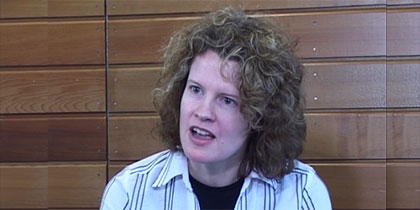
January 17, 2006, by Teaching at Nottingham
The good, the bad and the ugly: students’ experiences of group projects
Nicola Gray: “Background: Group projects have the potential to engage a large cohort of students in exercises that complement other aspects of the course. Effective use of resources is an important driver for course organisers. For pharmacy students, the importance of team-working in health care means that these exercises could provide skills to benefit their future practice. Literature in this field, however, raises issues about this teaching tool. The phenomenon of ‘social loafing’ (under-performing group members) is well documented. Authors also assert that badly-organised projects can reinforce negative perceptions of team-based learning, and that strategies for students wishing to achieve high marks may not be consistent with co-operation.
“The aim of this study was to explore the experiences of undergraduate pharmacy students regarding group project work.
“Methods: After reviewing existing literature, and preliminary conversations with tutees, it was considered most appropriate to conduct an anonymous self-completion survey with a large group of students: this strategy would enhance current knowledge in this field. Third and fourth year MPharm students were asked to characterise their best and worst experiences of group projects (involving more than 2 people), and to respond to general statements based on issues from existing literature. These students would have experienced a number of group tasks in their time on the course. Opportunities were given for free written comment about any aspect of the topic. Structured data were analysed using descriptive and comparative statistics, and free text comments by qualitative content analysis.
“Results: One hundred students responded to the survey (60 MPharm3 and 40 MPharm4). Best experiences were characterised by good team working, timetabled meetings, and well-articulated tasks from module convenors. Conversely, worst experiences were due to inactive group members, difficulty in organising meetings, and a task that was not clearly articulated. The majority of students (n=71) agreed that groups meeting socially as well benefited the work. Many students (n=53) felt that they earned worse marks for group projects than other tasks and assessments. Only 11 students favoured group projects over individual or 2-person tasks. Despite mixed experiences, most respondents (n=60) agreed that skills learned from group work would be useful in their future professional career. There were interesting findings in the free comments that warrant further exploration, including overseas students’ comments that group work was useful as they could see how other students organised their work.
“Discussion: Group projects appear among the best and worst experiences of a student on the MPharm course. These results are consistent with existing literature. Despite mixed reports of group working, many students could reflect on, and learn from, these experiences as representations of real-life future practice in health care. The use of group project work needs to be planned at a strategic course level in order to avoid very bad experiences that might affect students’ perceptions of team-based learning. Thorough planning of the task and assessment, specific timetabling, and instructions for students, will help benefits to be realised.”
Paper presented at the University’s Eighth Learning & Teaching conference (January, 2006).
Dr Nicola Gray
School of Pharmacy
No comments yet, fill out a comment to be the first

Leave a Reply